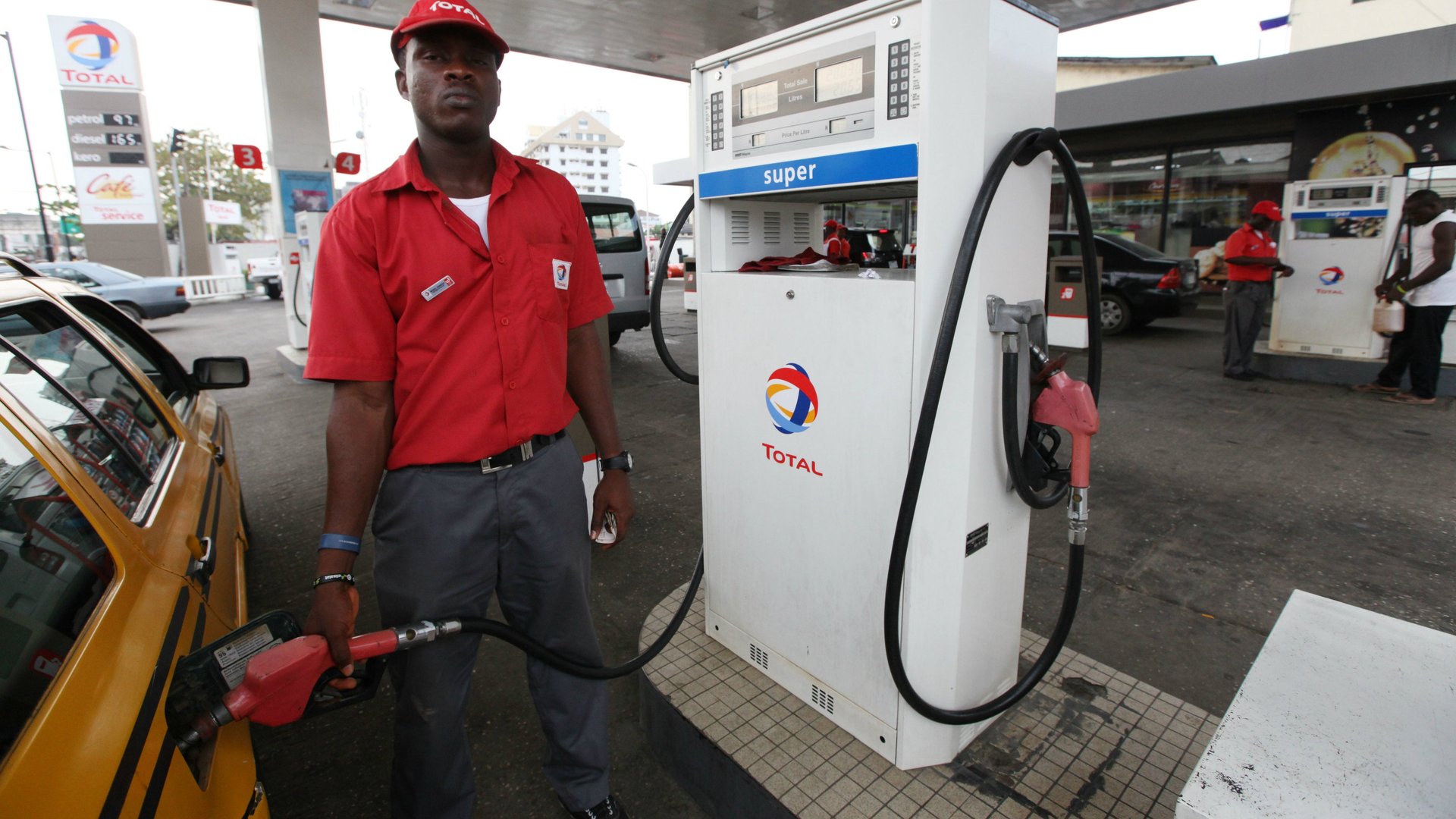Nigeria has finally canceled its shady oil swap deals
The Nigerian National Petroleum Corporation (NNPC) has canceled a controversial oil bartering program which used middlemen to pay for refined products from foreign partners in opaque deals.


The Nigerian National Petroleum Corporation (NNPC) has canceled a controversial oil bartering program which used middlemen to pay for refined products from foreign partners in opaque deals.
The Offshore Processing Arrangement for petroleum supply was set up to help meet demand for gasoline and diesel due to a shortfall from underperforming local refineries. But the program has been jettisoned by the Buhari government in favor of a direct sale-direct purchase approach.
The swap deals gained notoriety in the last six years under president Goodluck Jonathan’s administration with former petroleum minister Diezani Allison-Madueke overseeing the process. Between 2010 and 2014, Nigeria is estimated to have channeled over 352 million barrels of oil worth a total of $35 billion (pdf) into oil swap deals. Allison-Madueke was arrested in London last month on allegations of bribery and corruption.
The process has been widely criticized for being dubious and opaque with the state oil firm and its trade partners closely guarding the flow of information on oil swap deals.
Lamido Sanusi, the former Central Bank of Nigeria governor, described the swap deals as “not properly structured, monitored and audited” in a memo (pdf) to the Senate committee on finance last year. There was also a lack of clarity as to whether the NNPC was getting commensurate value for exchanged crude given the lack of oversight around the swaps.
The new direct sales-direct purchase process will now see the NNPC sell crude and buy refined products directly from credible international refineries without the involvement of middlemen thus severely reducing corruption and potentially saving billions of dollars.
The move is expected to plug major leakages in the petroleum industry. The country is reported to have lost more than $900 million to crude oil swap deals between 2009 and 2012 alone. By some estimates, cutting out the swap deals will save Nigeria around 230,000 barrels a day—about $11 million daily with current oil prices.
Ohi Alegbe, spokesman of NNPC has said scrapping the swap deals will “enshrine transparency and eliminate the activities of middlemen in the crude oil exchange for product matrix”.
President Buhari has said that major reforms in the oil industry will be one of his administration’s goals and as he looks to clean up an industry that is the country’s biggest revenue source.
Under Buhari’s watch, NNPC’s new boss Ibe Kachikwu seems determined to change the culture of the national oil company by championing transparency and accountability. As well canceling the controversial oil swap deals, NNPC has promised to police oil producing areas with drones to prevent oil theft and introduced internal podcasts to keep staff updated on NNPC’s operations and industry trends.